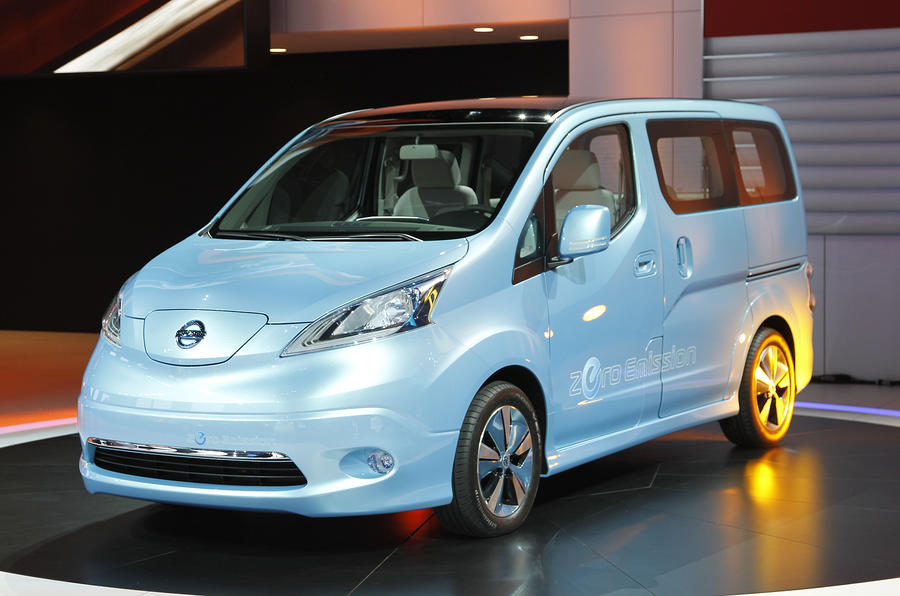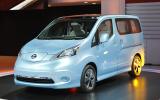Nissan is delivering on its promise to make an all-electric van using the Nissan Leaf’s running gear with this new Nissan e-NV200 Concept at the Detroit motor show. As the name suggests, the concept is based on the versatile Nissan NV200 van, which will form the basis of the next-generation New York taxi from 2013.
The e-NV200 Concept has “potential” as a mass production vehicle, Nissan claims, with businesses the likely target market for sales. Despite an initially higher purchase price, Nissan claims business users would notice a “reduction in operating costs” compared to conventional vans equipped with an internal combustion engine.
The Leaf hatchback provides the e-NV200 with its all-electric driveline. It gets a lithium-ion battery pack that powers an 107bhp/207 lb ft electric motor. All-electric range is claimed to be similar to the Leaf’s. The powertrain will not effect the NV200’s payload or cargo space.
Styling wise, the NV200 is instantly recognizable as a Nissan electric vehicle thanks to its Leaf-inspired front end. Like the Leaf, its charging connector point is hidden underneath a flap beneath the Nissan badge at the front. The concept is also painted in the Leaf’s Aqua Blue paint.
Real-world trials of all-electric NV200s are already underway around the world. Companies testing the development models include the Japan Post Service in Yokohama and FedEx in London.








Join the debate
Add your comment
Re: Nissan's EV concept van shown
This is the sort of vehicle that makes sense being an EV.
Companies that do local delivery runs can easily accommodate these vehicles which are run over relatively short urban and city distances during the day (easy for recovery if they do run out of juice) and can be charged back at base over night.
A sensible use of EV tech and one I think more manufacturers should concentrate on, rather than rushing EV cars to market.